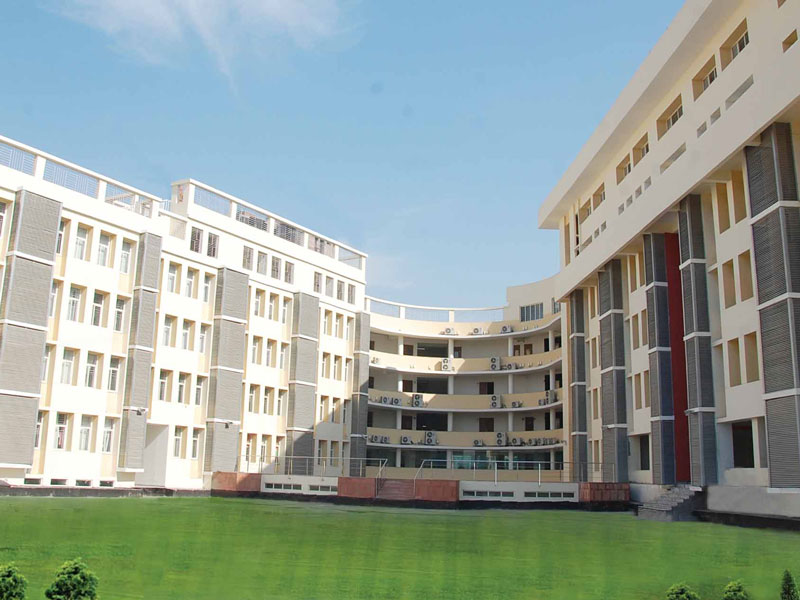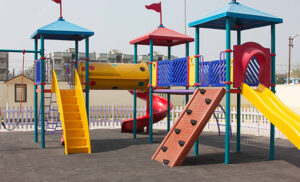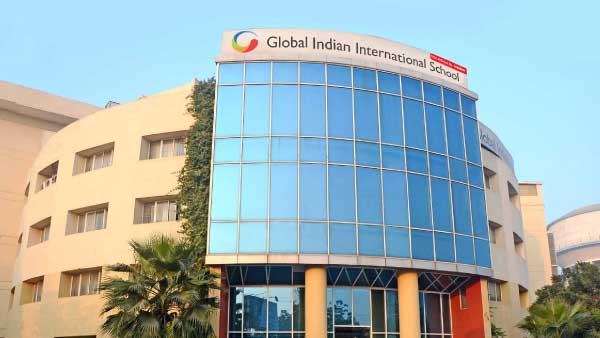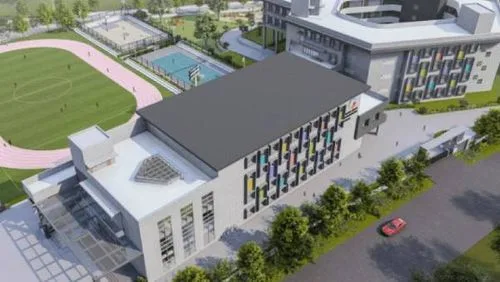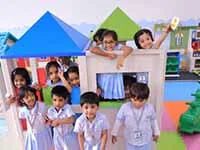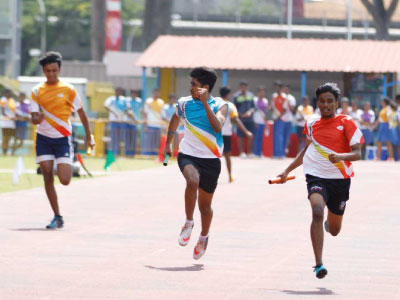Download our FREE Academic Calendar now! 📚 Start your child’s journey to success.
Table of Contents
- IGCSE or CBSE which is better?
- What Is IGCSE Board
- What Is CBSE Board?
- Key Difference Between IGCSE and CBSE
- 4.1 Course offering
- 4.2 Focus and Approach
- 4.3 Rigorous
- 4.4 Assessment
- 4.5 Textbooks and Reference Books
- 4.6 The Medium of Instruction
- 4.7 Examinations
- 4.8 uitability
- Pros and Cons of CBSE and IGCSE
Parents are often found in a dilemma when it comes to finding the right school for their child. Parents want to equip their children with the best school that provides the best curriculum and the right skills so that they get the expertise and become successful in the future.
The real struggle of parents is choosing the right curriculum, as there is a wide array of options of curriculums available in India
for eg:- CBSE, ICSE, IGCSE, and IB. Choosing a particular board can make a significant impact on a child’s future. So it becomes extremely essential that parents choose the Best CBSE school in Noida.
Curriculum in India
IGCSE or CBSE which is better?
In India ICSE and CBSE are still popular boards governed by local authorities. However, IGCSE and IB boards, are also gaining popularity these days governed by foreign authorities. These boards differ in terms of methodology, structure, and approach to education. So in order to make an informed decision you have to find out the unique and salient features of each board that meet the aspirations that you have for your child.
In this article, we will discuss IGCSE vs CBSE India.
What Is IGCSE Board?
IGSCE (The International General Certificate of Secondary Education) is a well-known curriculum administered by the University of Cambridge International Examinations.
It is designed to have holistic development in the child such as the development of analytical, creative, and inquisitive thinking.
IGCSE subject choices in India is wide so teachers help students to make the right choice. With this curriculum, students get the benefit in preparation for higher levels such as AS and A Level, IB Diploma Programme.
The curriculum is the perfect mix of local and global context ensuring that student gains a broad perspective of the world. Students also get the flexibility of choosing between the core(basic) and extended(rigrous) curricula offering a wide range of subjects where assessments are designed to evaluate the knowledge of the student.
The course holds international recognition by top universities and colleges helping the student to pursue higher education abroad.
What Is CBSE Board?
CBSE (The Central Board of Secondary Education) is the popular national curriculum governed by Govt of India and they follow the National Council of Educational Research (NCERT) syllabus is well structured, controlled, and predictable.
CBSE curriculum in India is delivered both in English and Hindi across India. They follow the traditional approach in the assimilation of knowledge where they are evaluated on their ability to memorize and recall concepts in examinations.
However, their assessment to a certain extent also has a practical understanding of the student. This education board is one of the most affordable boards is one of the main reasons for being preferred by parents.
Key Difference Between IGCSE and CBSE
Both this curriculum has a big difference as it suits students who had different education needs as we say one curriculum does not fit all. Picking a curriculum mainly depends on the aspirations of parents for their child and their child’s abilities, dreams, etc.
So let’s dig into more differences between the two curriculums.
Course offering
CBSE:- The course offers fewer subjects and in the higher grades students have to choose from 3 “streams” – Commerce, Arts, and Science.
IGCSE:- The course offers over 70 different subjects which help students to gain a global perspective.
Focus and Approach
CBSE:- The key focus is on the accumulation of knowledge, building skills, etc
IGCSE:- The course applies equal focus on all subjects helping students to gain an inquisitive approach, gain a better understanding of the subject.
Rigorous
CBSE:- The curriculum is easy and does not require advanced knowledge on the subjects.
IGCSE:- The curriculum is rigorous and requires students to submit assessments with regards to every topic learned through the year.
Assessment
CBSE:- The syllabus is application-based and the assessment is done in order to check students’ ability to memorize, recall and understand the concepts.
IGCSE:- The assessment is done to check the practical application of the skills and knowledge.
Textbooks and Reference Books
CBSE:- CBSE international curriculum syllabus follows NCERT textbooks to facilitate learning on the subjects.
IGCSE:- IGCSE curriculum syllabus in India does not follow any books. Students have to read from a wide variety of books in order to understand and learn more.
The Medium of Instruction
CBSE:- Being national curriculum medium of instruction is English and Hindi.
IGCSE:- Being an internationally recognized curriculum, the medium instruction is only English.
Examinations
CBSE:- The most important examinations is Class X and Class XII.
IGCSE:- Cambridge Primary and Secondary examinations conducted by the IGCSE school board.

Suitability
CBSE:- It is the best curriculum for children whose parents have transferable jobs as being one of the popular Indian curricula, a student can easily get admission or transfer to any CBSE School. It is also best for students who aspire to take the IIT-JEE exams, NIT, and AIIMS examinations.
IGCSE:- It is best for students who want to pursue International Baccalaureate Curriculum in Class 11 & Class 12.
Pros and Cons of CBSE and IGCSE
Pros of CBSE
● It helps in developing holistic individuals
● It is student-friendly.
● It recognized by the Indian government.
● Students have to appear for 1 exam per subject which relieves them from exam stress
● students can prepare for exams privately
● Children can’t fail a class until 8th grade.
● CBSE Board exams are optional in 10th grade and mandatory in 12th grade.
● The fees are affordable.
Cons of CBSE:
● Students do not have enough subjects to choose
● The board focuses more on theoretical knowledge.
● Student’s ability is judged on examination score
● Extracurricular activities are part of the curriculum
Pros of IGCSE:
● Students get a wide variety of subjects to choose from.
● Students can refer to multiple books to gain more knowledge.
● Best board to pursue further studies abroad.
●
It encourages knowledge-oriented learning.
● Students have the chance of resitting an exam if they are not satisfied by the grades. Requesting for rechecking and a copy of their answer sheets is allowed.
● IGCSE holds recognition all over the world so students can easily get entry into a prestigious institute.
● Students have a higher chance of good job opportunities.
● Students develop many skill sets which help them to adjust anywhere in any situation
.
Cons of IGCSE:
● The fees is expensive compared to CBSE
● The medium of language is only English.
● Students need to put a lot of effort as it is extremely rigorous
Read Also: Choose CBSE School Education for Your Child
The CBSE and IGCSE curricula are excellent but cater to different educational needs of students. No matter whatever your choose gaining good quality elementary education from Noida International school makes the difference which is required to pursue further studies without any impediments.
